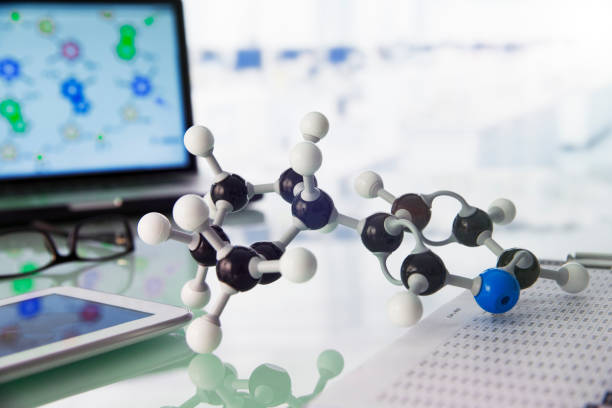Our Drug Design and Molecular Docking Training
Molecular docking and computational drug design are now essential tools for pharmaceutical, biotech companies and researchers to reduce the cost, time and reduced risk. Our drug design and molecular docking coaching centre provide learners with both conceptual knowledge and technical proficiency needed for modern drug development projects. We support to identify the druggable targets, design and optimise small molecules, evaluate drug using industry standard software and databases.
Our Genomic Resolve Research Centre provide real time case studies, project work and exposure to critical topics like ligand receptor interactions, structure-based drug design, pharmacokinetics and molecular visualisation. Our coaching approach ensures that our candidates don’t just understand how drug design works but gain confidence and perform them individually. We offer cutting edge training in drug design and molecular docking that accelerate your research and enhance the success rate of drug discovery projects.
Who are qualified?
- Students and graduates B.Sc, B.Tech, M.Sc, M.Tech, PhD candidates from Biotechnology, Biochemistry, Pharmacy, Nursing, Microbiology, Biomedical, Bioinformatics and other science related backgrounds.
- Faculty members and research Scholars looking to integrate molecular docking into their research.
- Working professionals seeking to enhance their skill set in drug discovery tools and techniques.
Our Course Modules:
Introduction to Drug Design
Principles of drug discovery: target identification, lead optimization.
Computational vs. experimental approaches.
Reading: Reviews on drug discovery pipelines.
Molecular modelling and Cheminformatics
Molecular representations: SMILES, InChI.
Tools: ChemDraw, RDKit, OpenBabel.
Practical: Generate a molecular model using ChemDraw.
Molecular Docking Fundamentals
Docking principles: ligand-receptor interactions, scoring functions.
Tools: AutoDock, Vina, PyRx.
Practical: Perform docking of a small molecule to a protein target.
Structure-Based and Ligand-Based Drug Design
SBDD: Using protein structures for drug design.
LBDD: QSAR, pharmacophore modeling.
Practical: Build a QSAR model for a drug dataset.
Applications and Case Studies
Case studies: Drug design for cancer, infectious diseases.
AI in drug design (e.g., generative models).
Assignment: Design a drug candidate for a specific target.
Why choose us?
Our Expertise: Our highly qualified professionals with deep knowledge and experience in computational, structural biology and pharmaceutical science. They support with their scientific knowledge and strategic insights to our candidates.
Hands on Training: Our program includes real time and project-based training using industry standard tools and develop practical skills in drug design and molecular docking.
Flexible Batch and Duration: We offer weekday and weekend batch which suit our students and working professionals and provide 15days to 3 months based on their convenience.
Accommodation Facilities: We support comfortable and affordable accommodation assistance near our training institute for outstation candidates.
Certification: Achieve your certification in drug design and molecular docking and also for project based or advanced training skills.


